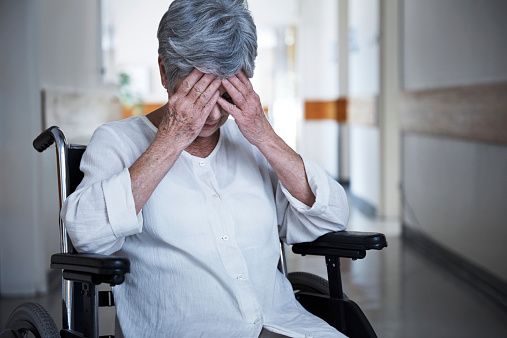
A Georgia Nursing Home Abuse & Neglect Attorney Discusses the Problem
It's getting harder and harder to find people willing to work in nursing homes, assisted living facilities, and other long-term care facilities.
The problem is even worse in Georgia, where 1 in 4 nursing homes earns a 1-star rating — the lowest score possible — for staffing levels. A recent Atlanta Journal-Constitution article noted that an Atlanta nursing home resorted to paying employees $500 bonuses to work the weekend.
When there is not enough staff at a nursing home, patient care often falls short and patients are injured by neglect.
With fewer people attending to the immediate needs of the nursing home residents, some very vulnerable people are not getting the care they need and deserve. Often, they are being left in beds all day and not being properly cleaned, leading to painful and severe medical conditions.
Serious injuries due to falls, infections (e.g., sepsis), and bedsores become common.
Regardless of staffing levels, when a nursing home is paid to take proper care of a person, they have a duty to meet health and safety standards. When a nursing home fails, excuses mean very little to the victims and their loved ones. That's why it is important to hold negligent nursing homes and assisted living facilities accountable when their actions lead to serious injuries or death.
Georgia's Severe Staffing Problem
Georgia has the fourth-lowest staffing level nationally for nurses aides and nurses, according to a recent review. Nationally, short-staffed care facilities have been a problem that keeps getting worse for more than a decade.
The problem was accelerated in 2019 when the COVID-19 virus touched down in the states. Health care workers on the front lines fighting COVID were put at a higher risk of catching the disease and, at least at first, had inadequate protection against the virus. With little available to treat the illness, the burden to help elderly COVID patients recover was often insurmountable. This encouraged more people to leave the field. Many of those who stayed left later due to burnout.
As vaccines have become available, few people have returned to low-paying nursing home jobs.
In Georgia, nursing assistants earn about $12.65 per hour working in a nursing home. That's 22% less than the national average, according to Indeed.com's salary survey. Meanwhile, the average hourly rate for a Georgia retail sales associate is $12.48 per hour.
Higher wages may be the answer to staff shortages in nursing homes, but few facilities are able or willing to do this.
Why Wages Remain An Issue
Many people have noted that nursing homes may be able to turn the tide by offering higher wages, but administrators often say this is not possible. Until the way nursing homes are funded, some say, the industry will continue to suffer.
A lot of nursing homes are operating on a fixed budget, more or less. Most nursing home residents are covered by Medicaid. This federal health program reimburses nursing homes for the services provided to their clients but at far less than 100%. This means that nursing homes can lose money on Medicaid patients. If there was not a law barring nursing homes from rejecting Medicaid patients, it would most likely be very difficult for them to find care.
Because nursing homes have no control over the reimbursement rate or whether they accept Medicaid patients, administrators say they don't have the funds or ability to raise money to pay better staff wages.
Another problem nursing homes face is a significant decline in residents. Georgia nursing homes are at about 64% occupancy, and the rising cost of equipment and materials is further cutting into care facility budgets.
Right now, the Georgia nursing home industry is seeking almost $350 million in COVID-19 relief funds to help facilities stay open.
Lack of Staff Impacts Care
When staffing levels are low at nursing homes, avoidable injuries and death happen.
The most common nursing home injuries include:
- Bedrail injuries
- Bedsores, which if left untreated may become infected and cause sepsis
- Dehydration and malnutrition
- Broken bones
- Concussions
- Infections
- Asphyxiation
- Falls and fractures
- Spinal injuries
- Traumatic Brain Injuries
In August, we wrote about the "missed care epidemic," which essentially refers to when a nursing home patient's treatment is delayed, partially completed, or not completed at all due to staffing shortages. Sadly, things have only gotten worse since then.
We Hold Negligent Nursing Facilities Accountable
When an assisted living facility or nursing home is short-staffed, it's often the residents who suffer. That's because understaffing is a common contributing factor to nursing home abuse and neglect. A nursing home that's understaffed can't provide the same appropriate level of attention and care to its residents, meaning patients are at risk of malnutrition, dehydration, infections, medication errors, and falls.
If you suspect your loved one is being abused or neglected at a nursing home, contact The Law Office of George S. Johnson, LLC to learn your legal rights and options. Attorney George S. Johnson is a former U.S. Army Reservist who takes pride in fighting for the justice his clients deserve. Discover what our law firm can do for you and contact us today for a free and confidential consultation.
